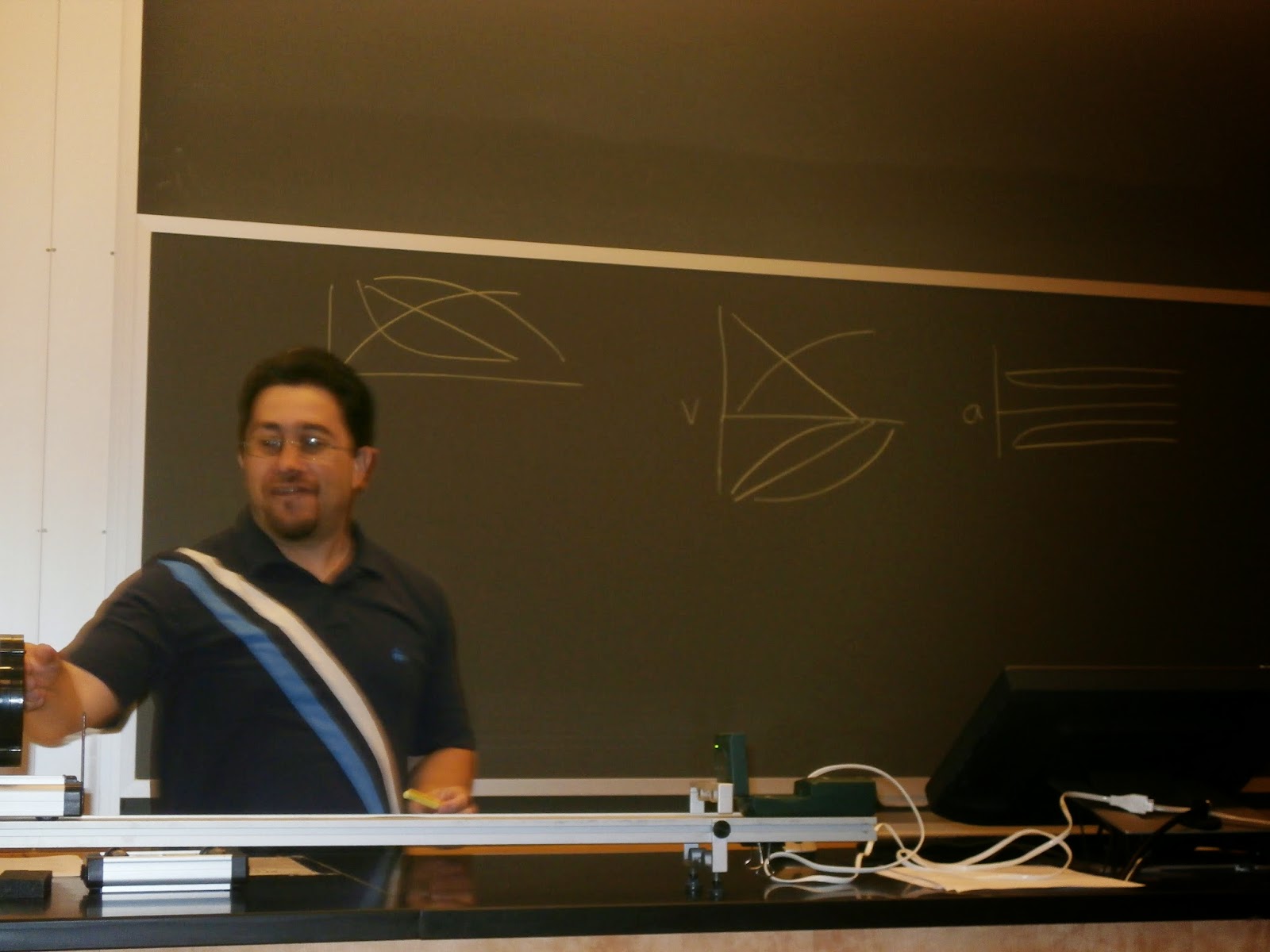 |
| Craig showing us position, velocity, and acceleration |
In between lectures, Bill was justifying the superiority of physics by saying that chemistry is just applied physics, and biology is just applied chemistry. (Of course, physics is just applied mathematics, and mathematics is the only "pure" science.)
 |
| Bob Hollobeek's slideshow on advances in cancer screening |
Then we had a guest lecturer, Bob Hollobeek, who talked about advances in PET Scanning to detect and destroy cancer cells without damaging normal cells. His talk was very interesting, and he emphasized the aspect of science where you always just look at things and think "how could this be done better?"
After lunch, in the afternoon, Bill talked to us about the equations that govern impulse and work, among other things. (He also told us that on Friday we'd get to roll bowling balls around a car museum worth hundreds of millions of dollars.) Then we got into our lab groups to do a lab on impulse and work, where we pushed carts at a clothespin on a dowel rod and measured the force, velocity, and position of the cart as the interaction occurred, so that we could calculate experimentally whether or not Newton's laws work. (We had a breakthrough: they do!)
 |
| Bill rolling a bowling ball to show us how it's done |

Did you ask him what would happen if he rolled that bowling ball into a tank of water? ;-)
ReplyDeleteDid you share with Bill your observation that physics is "just" applied math and that math is the only "pure" science?